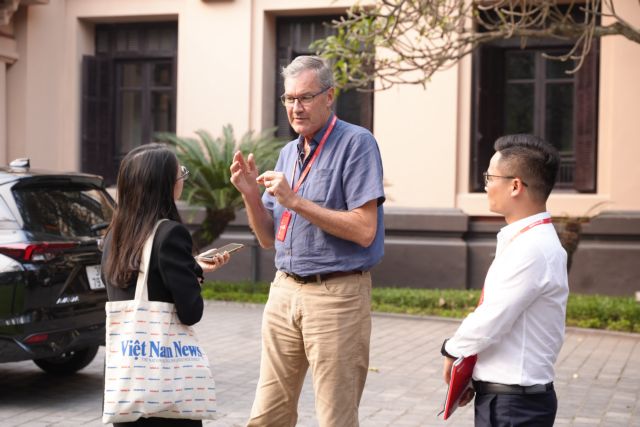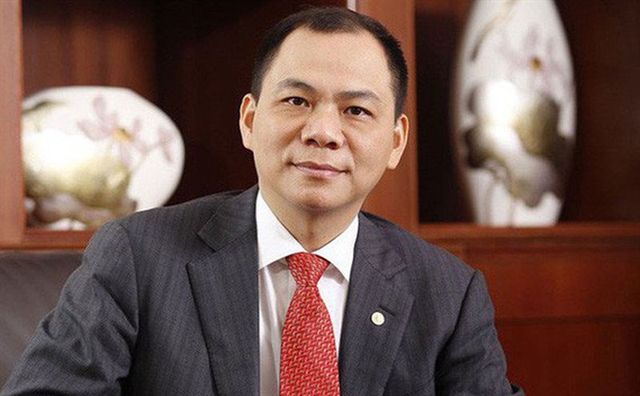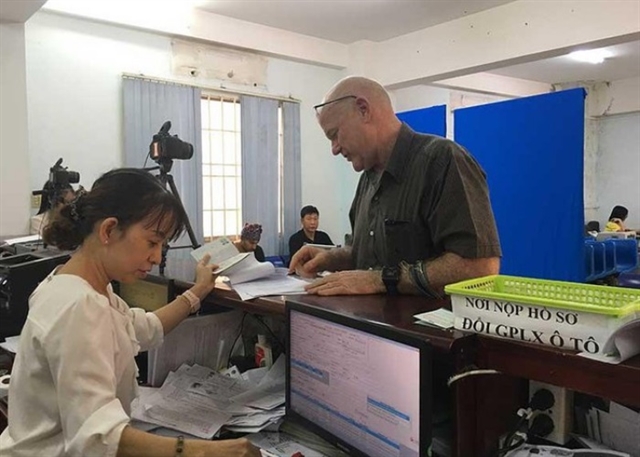 Economy
Economy

As of September, the total number of funds operating on the market was 52.
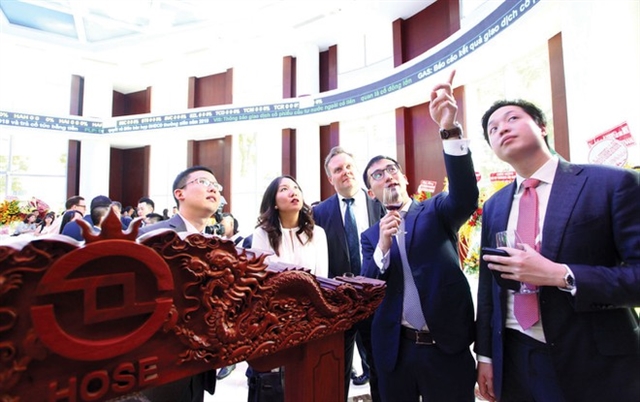
|
| Domestic and foreign investors at the Hồ Chí Minh Stock Exchange. — Photo tinnhanhchungkhoan.vn |
HÀ NỘI — Việt Nam’s equity market has been attracting trillions of investment capital via the flourish of equity funds.
As of September, the total number of funds operating on the market was 52, including 33 open funds, two closed funds, 10 member funds, six ETFs and one real estate fund. The total net asset value (NAV) managed by the funds is VNĐ43.86 trillion (US$1.9 billion).
Notably, the total exchange value of ETFs’ certificates in the first nine months of the year amounted to VNĐ6.88 trillion, up 46.4 per cent compared to the whole year of 2019, of which four ETFs have successfully launched IPOs.
The number of ETFs, open-ended funds and bond investment funds has soared over the years, but they vary significantly in total NAV.
The total NAV of bond investment funds has grown to VNĐ16.62 trillion, accounting for 79.14 per cent of all funds’ NAV on the market. Bond funds have applied digital technology, offering diversified products to attract investors, typically Techcombank's bond fund, IPAAM's bond fund, MB Capital and SSI Fund Management Company Limited (SSIAM).
The newly-established ETFs have lured large investment capital, which created positive sentiment for the market. VFMVN30 ETF attracts capital flows from Thailand and South Korea, bringing its total NAV to VNĐ6 trillion.
In September, CTBC Vietnam Equity Fund disbursed hundreds of billions of Vietnamese đồng to buy VFMVN Diamond ETF’s certificates.
CTBC Vietnam Equity Fund was established on August 25 this year and is owned by CTBC Investments, one of the leading asset management companies in Taiwan. Dragon Capital is the advisor for this new fund. The fund's initial commitment capital scale is $160 million, equivalent to about VNĐ3.7 trillion.
As for the SSIAM VNFIN LEAD ETF Fund, NAV has increased to VNĐ800-900 billion. MAFM VN30 ETF Fund expects to raise NAV to VNĐ100-200 billion in the first phase, and increase to VNĐ2 trillion within a year.
Foreign capital
Foreign capital is pouring into the Vietnamese stock market mainly through large investment funds and ETFs, said Trần Thanh Tân, General Director of Việt Nam Investment Fund Management JSC (VFM).
“Investing in an ETF is the simplest and fastest because these funds focus on the most transparent group of stocks on the market. The development of ETFs is a global trend, not only in Việt Nam,” he said.
“ETFs act as the bridges linking capital flows from large markets to potential target markets,” said Đỗ Bảo Ngọc, Deputy General Director of Vietnam Construction Securities Joint Stock Company.
“This is also an easy way for foreign investors to invest in the local market, they don't have to open a direct account, transferring money and dealing with more procedures,” he said.
“Experts acknowledged that foreign investors investing in funds recently meant to seek opportunities when Việt Nam's stock market is upgraded from the frontier to emerging status in the near future.
“However, upgrading status is only one factor, the nature of the problem is that the Vietnamese economy has great potential for development. Even during the COVID-19 pandemic, Việt Nam has gained investors’ confidence as the disease was successfully controlled, the economy recovered quickly and the Government had many solutions to support the economy.”
According to Soh Jin Wook, Investment Director of Mirae Asset Vietnam Fund Management Company, the increase in number and size of investment funds in Việt Nam showed the development of the financial market.
This year, many governments around the world have provided great liquidity for the financial system, he said.
Việt Nam had done the same thing to boost the economy, through which some of the liquidity flowed into the stock market, he said.
Investment firms were constantly exploring new opportunities, despite the difficult environment, which is one of the core aspects of the investment industry, he said.
Nguyễn Phan Dũng, Deputy Director of SSIAM said in recent years, the Vietnamese market had attracted large capital via ETFs, PE funds and some active funds.
Dũng said market status upgrading did not greatly impact the market’s ability to attract foreign capital.
“Việt Nam may remain in frontier market status for a few more years before being upgraded to emerging status. Cash flow poured in frontier funds is not significant, the factor driving the stock market up from the beginning of the second quarter is mainly cheap capital flows in the domestic market,” he said.
“Interest rates tend to decrease since the beginning of this year, which stimulates the flow of savings into other investment channels, including the stock market as the second-best choice after real estate,” Dũng said.
“Therefore, although foreign investors have been net sellers for many months now, the stock market is still stable and growing,” he said. — VNS


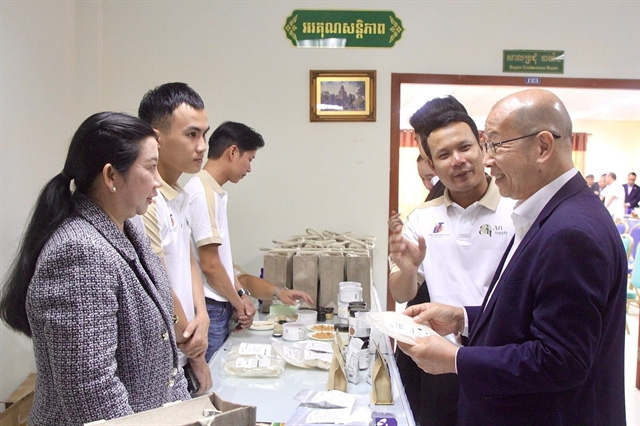
.jpg)
